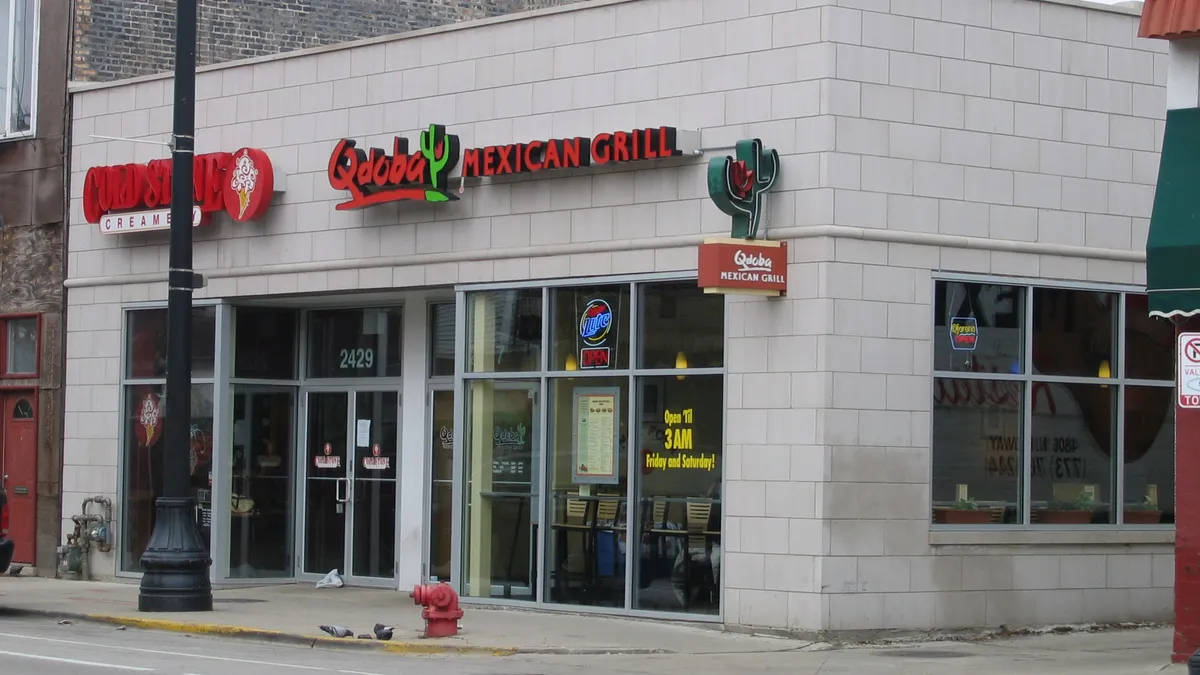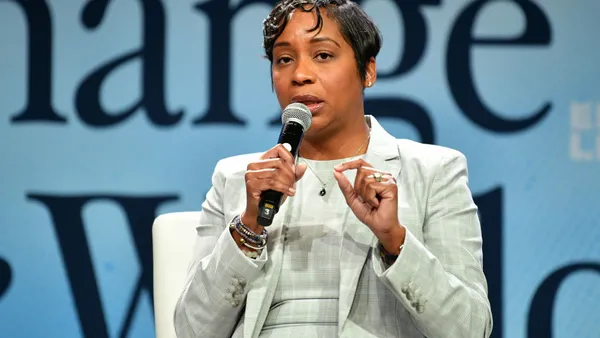Dive Brief:
- The Massachusetts state attorney's office levied $409,400 in penalties on Mexican fast casual chain Qdoba Wednesday, citing over 1,000 breaches of child labor law.
- State attorney general Maura Healey cited incidents at 22 company-operated locations across the state. Qdoba's fine is not far off of the sum of penalties requested by Healey's office in the previous fiscal year across all businesses, which totaled $487,050.
- Violations included workers under 18 being asked to work too late or work too many hours in a shift, including over 200 cases of minors working for over 11 hours in a single shift despite state law capping the number at nine hours.
Dive Insight:
Overtime violations pervade throughout the restaurant industry — a 2009 report by the National Employment Law Project found nearly 70% of restaurant workers who were at risk of a violation had experienced an overtime violation at least once in the last work week. A separate study of adolescents working in the retail or service industries listed minors working off the clock or working past the latest time allowed during the work week as common hour violations, concluding that gaps exist in enforcement of child labor policy.
The extent of Qdoba's cited violations is rare, with the state attorney general office levying on the chain almost twice the amount in penalties charged to a Burger King franchisee in 2017 for child labor law violations at its own stores — the most recent high-profile child labor law case in the state. At the time, Healey commented on the violations, "Many fast food employees are young, working their first jobs, and do not know their rights ... it's important that this major national Burger King franchisee, which employs a number of young people, complies with child labor laws and ensures that minors are safe in its restaurants."
Experts recommend that employers implement and follow a recordkeeping protocol, and train managers to insist that employees record their hours accurately through the system, in order to comply with fair labor laws. In workplaces where minors are employed, a higher degree of managerial oversight is obviously required. The FLSA requires all employers maintain proof of workers' ages, for example, to ensure their business is complying with labor laws.
The restaurant and hospitality industries also face some of the highest rates of wage theft, with minimum wage and tipped wage workers especially vulnerable. Pret A Manger, Ruby Tuesdays and a franchised Papa John's in New York have faced significant fines in recent years for labor law violations involving time-shaving practices. Pret A Manger most recently paid out $875,000 to employees of its New York City locations in October 2018, but settled a lawsuit of $910,000 four years ago over similar issues.
For the QSR segment in particular, it is often the case where brands have to rely on individual franchise owners to comply with labor laws, as if they get too involved with day-to-day scheduling or oversight of individual franchises places a brand at risk of being classified as a joint employer and liable to a significantly higher payout, were a violation to occur. But, brands conversely face the risk that high-profile cases of labor law violations among franchisees could tarnish its own reputation.













